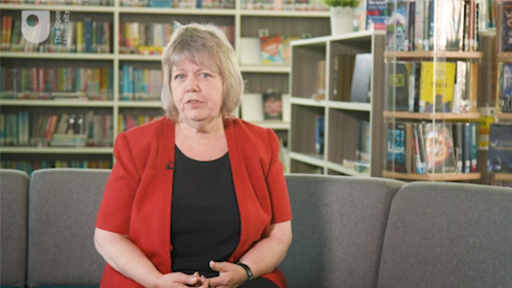2 Supporting independent learning
In the previous section, you looked at the importance of teaching students to navigate and retrieve information. This ability to ‘search and find’ is just one component of information literacy. Other key elements include ‘subject-specific learning’, where students are equipped with the skills appropriate to their subjects of study, and ‘enquiry-based learning’, a student-led form of education where students are encouraged to adopt an active and independent approach to their studies. These aspects of information literacy all have complementary roles to play in students’ educational achievement. For example, the ability of students to ‘search and find’ appropriate information efficiently is essential if they are to learn independently. This skill, in turn, is crucial to future success: by adopting an active approach to work, as well as learning to analyse and synthesise information in a sophisticated way, a student will develop skills which are highly valued by employers and of great use in daily life. The ability to learn independently also enables students to satisfy their intellectual curiosity, thereby offering great potential for personal enrichment.
As librarians, you can help students develop the skill set necessary for independent learning by encouraging them to adopt a strategic approach when approaching research. Whether using the internet or traditional resources such as books and journals, drafting a search plan, identifying sources of information, and carefully considering keywords or terms, such as the subject, title or author of the resource, can all help guide students towards a successful outcome. They may also find it profitable to maintain a search record and structured notes. By introducing them to these practices, you will enhance their ability to undertake effective research and, consequently, prepare them to approach learning independently.
For further tips and ideas about how to encourage independent learning amongst your students, watch the video below. Then, complete Activity 2, reflecting on the current habits of your students.

Transcript: Video 2
Activity 2
Indicate whether or not your students are familiar with the examples of independent learning that appear in the table below.
For those practices that you’ve marked as unfamiliar, how do you think you could help students become more familiar? What activities could you set up?
| Students who use my library | How you could help students become more familiar | |||
|---|---|---|---|---|
| Practice | Familiar | Unfamiliar | Unsure | |
| Devising a search plan/strategy | ||||
| Identifying information sources | ||||
| Considering keywords, terms and phrases | ||||
| Evaluating and selecting results | ||||
| Keeping a diary to record sources and results | ||||
Comment
Now that you have completed the activity, consider whether there are any areas for improvement. If there are practices which you feel your students are unfamiliar with, you can raise awareness through leaflets, posters, and study guides. Alternatively, you could adopt a more targeted approach and contribute to lessons where you can engage directly with students and answer their questions.
So far in this session, you have seen how effective research not only involves identifying relevant sources of information, it also includes using that information appropriately. This includes referencing correctly. Therefore, in the next section, you will focus on the concepts of plagiarism and citation and look at ways to educate students on the importance of academic integrity.
